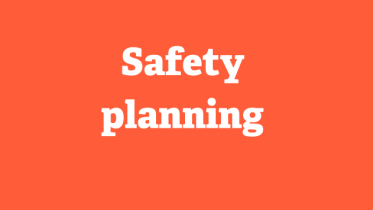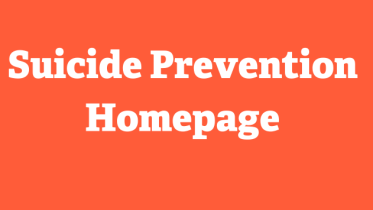There are various ways to get ongoing support during difficult times, either for yourself or someone else.
Support looks different for everyone – it might involve practical support (e.g. managing a debt), emotional support (e.g. talking through difficult emotions) or social support (e.g. helping someone to get out of the house). You could also use various tools to support yourself or to look for the right person to help you. You may find that the first source of support you try doesn’t work as well as you’d hoped – but think about trying other options – one of them might be a better fit.
Know that there’s lots of support available
Some people prefer to talk to a friend or family member, while some might look to online forums or groups for support; others benefit from professional help. No matter where you find your support, the more you talk about your issues and feelings, the more support you can get. Your support network is ‘your team’ – the people you can turn to when you need help.
Having a support network can:
- reduce feelings of loneliness, isolation, distress, depression, anxiety or fatigue;
- improve your ability to cope with challenges, help you feel in control and generate hope;
- improve your motivation to tackle your issues.
The people who are supporting you are doing so because you’re important to them, and they care. You’re not a burden to them, you’re not an inconvenience or a problem.
The sections below give some ideas about how to make good use of available support options.
Jump to: Personal support | Supporting someone else | Support from a GP | Self-help options
Personal support (family or friends)
Family and friends are often the main sources of support for someone going through a difficult time. Here are a few tips on how to make the most of this support network. These can apply equally to you or someone else.
- Keep talking – if someone’s having difficult feelings, it’s best if they try to keep talking. This might be to one person or several people, and different people might be better for talking about different things.
- Enjoyment and connection – doing things you enjoy with other people can help you to feel connected and help keep suicidal thoughts at bay. This could include finding new hobbies and social groups or reconnecting with people not seen for a while. You could start by suggesting doing something together, even if you/they don’t feel like it right now.
- Steer away from alcohol or drugs – some people use alcohol or drugs to try to feel better or cope. Focusing instead on good sleep, eating well and getting fresh air can help. Finding healthy distraction techniques (e.g. listening to music, talking about something other than feelings or watching a film) can also be a good way to steer clear of alcohol and drugs
- Workplace support – It can be daunting to talk to people at work about yourself or someone you’re worried about. Talking to your line manager, or an occupational health professional or contacting employee assistance programmes (which are often confidential) can be very helpful.
 Supporting someone else
Supporting someone else
If you’re supporting someone else, here are a few other ideas.
- Checking in – regular check-ins can help those struggling with suicidal thoughts to feel less alone and more connected. How you check in depends on everyone’s needs and what’s feasible. Aim to agree with the other person how check-ins will be made (e.g. by text, phone call or in-person) and how frequently you’ll have them.
- Don’t try to ‘solve’ everything – it can be tempting, but support might not necessarily mean solving their problems. Allowing someone to talk openly and supporting them to move forward are more important.
- If they’re quiet – even if someone’s not saying much, they’re likely to be listening. Be patient, and let them know that you’ll be there to support them – to listen and to talk – when they’re ready.
- If you’re concerned – be direct and gently ask them how they’re feeling: perhaps try something like “I’ve been thinking about you lately. How are you doing?” or “Have you had any thoughts of suicide this week?”
- Look after yourself – it can be hard to support someone who’s struggling so make time to look after yourself. Some ideas are available by clicking on ‘Sources of Support’.
Having a quick check-in with someone who’s struggling can help them to know that you care and that they matter. Even if someone doesn’t want to talk, reassuring them that you’re there to listen – when they’re ready – can be a big help.
Seeking support from a GP
The primary way to access professional support (e.g. counselling, mental health services or medication) will be through a GP. There may be concerns about telling a GP, but they can help to consider the best options for someone.
Getting support to see a GP
If you’re not sure what to say or do, or maybe if you’re putting off making an appointment with your GP, then you could consider asking for help from a friend or family member with:
- help to make the appointment;
- help to figure out what to say in the appointment;
- travelling to the appointment together;
- attending the appointment together.
If you’re supporting someone, then you could offer to help with the appointment or check in with them afterwards to ask about how it went.
What if they don’t want to go or must wait for an appointment?
There are many other support options that can lift someone’s mood, help to manage emotions and protect against suicide. Have a look at the suggestions in the “Self-help options” below.
Self-help options
There are several things you can do to help support yourself through a difficult time. There is a detailed section on support options which you can access by clicking on ‘Sources of Support’ below, but here are some examples.
Use smartphone apps
We have a Health App Finder, which signposts free apps that give advice on how to look after your mental health and physical wellbeing. We also recommend these apps specific to suicide and self-harm prevention:
- distrACT – provides techniques and advice on how to avoid self-harm or suicidal thoughts or actions.
- StayAlive – provides quick access to crisis helplines, support and guidance when a person is thinking about suicide.
Peer and community support
You may wish to explore whether there may be suitable community or peer-support options in your area or online e.g. Hub of Hope. Using peer support means you can get help from people with similar experiences.
Use a safety plan
A safety plan is a great tool to help manage your feelings in times of distress or thoughts of suicide or self-harm. However, it’s best completed when you’re not upset or struggling and used to prepare for difficult times. There’s more information and a template safety plan available on the ‘Safety Plan’ page.




